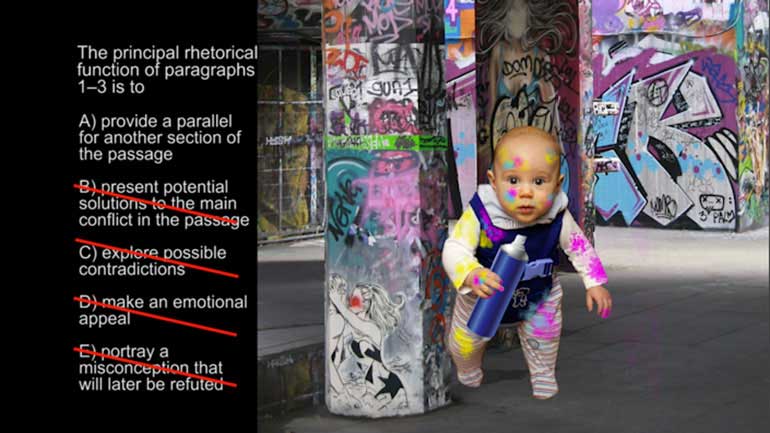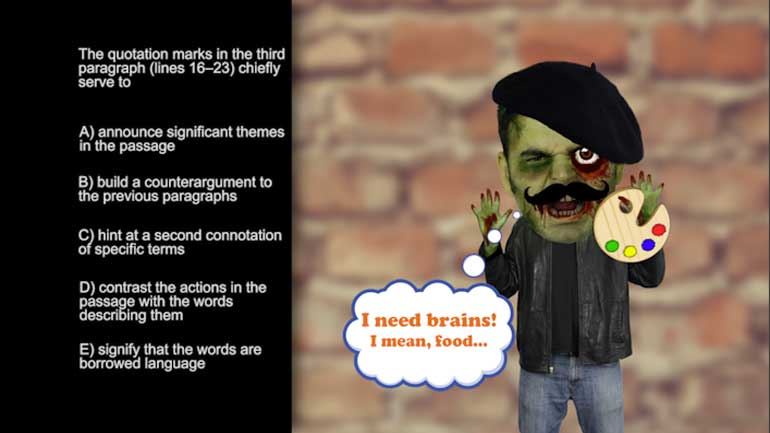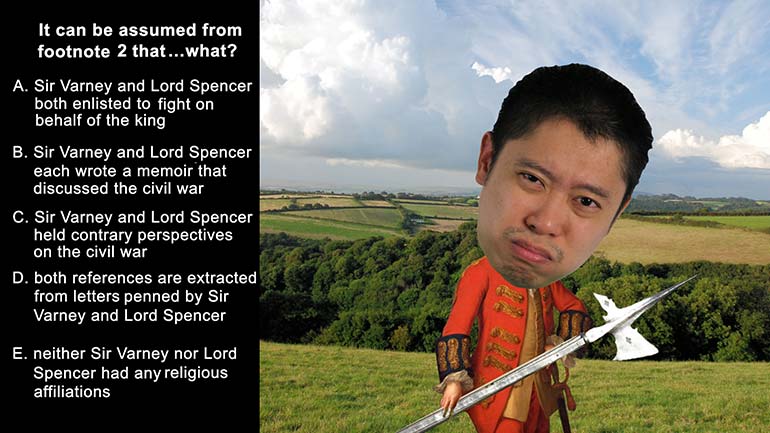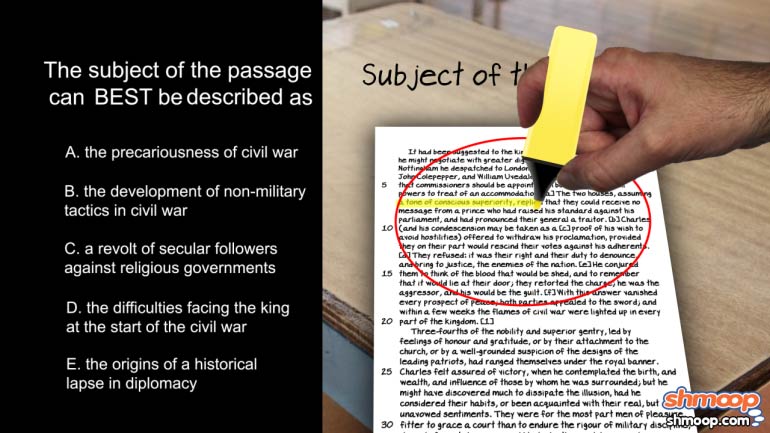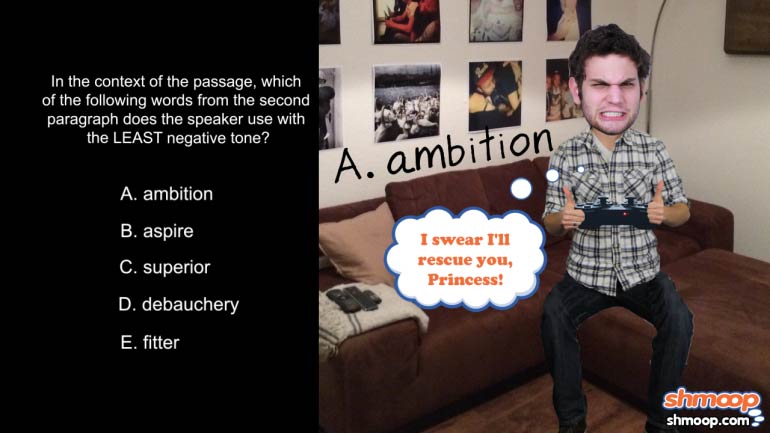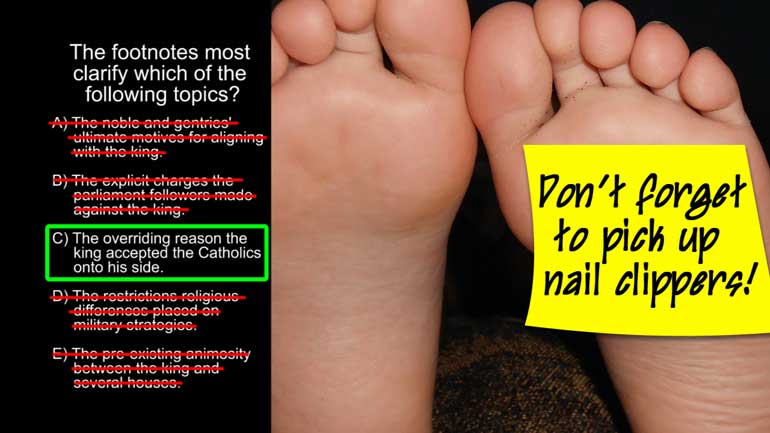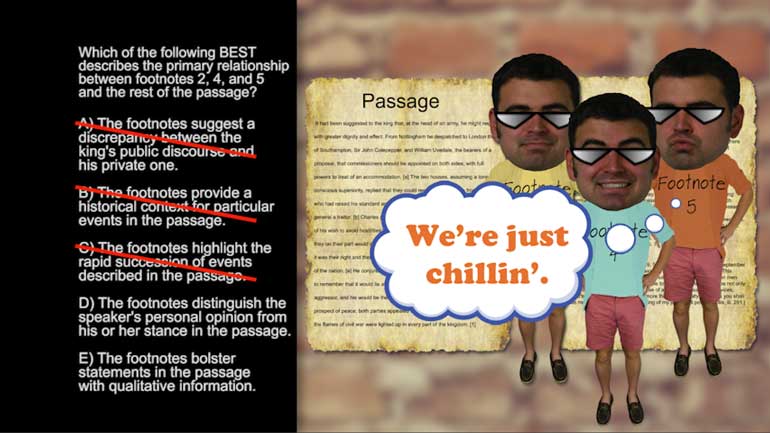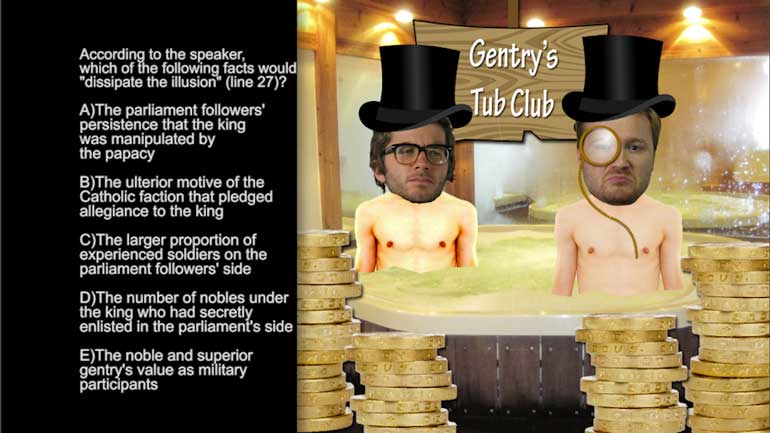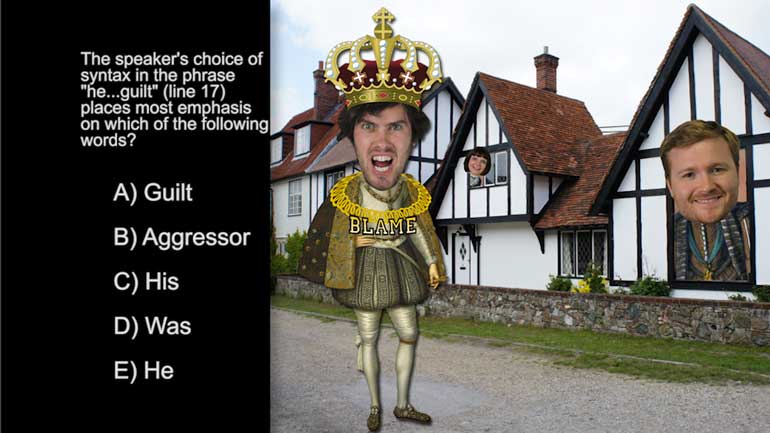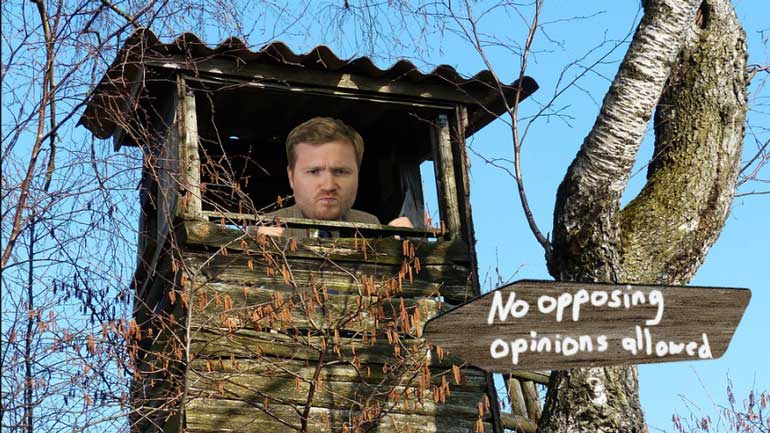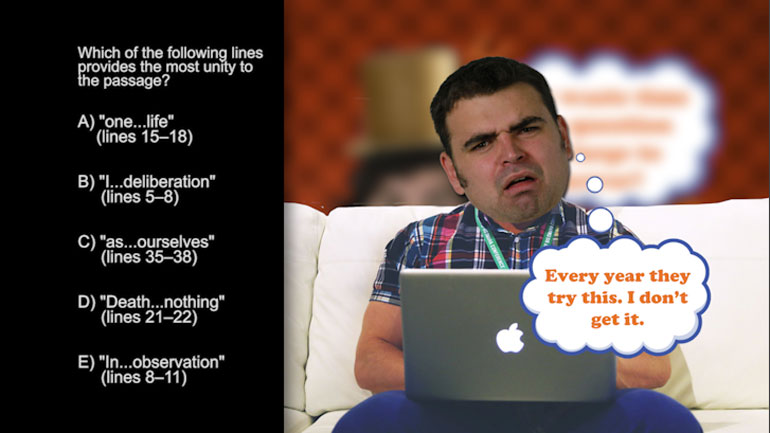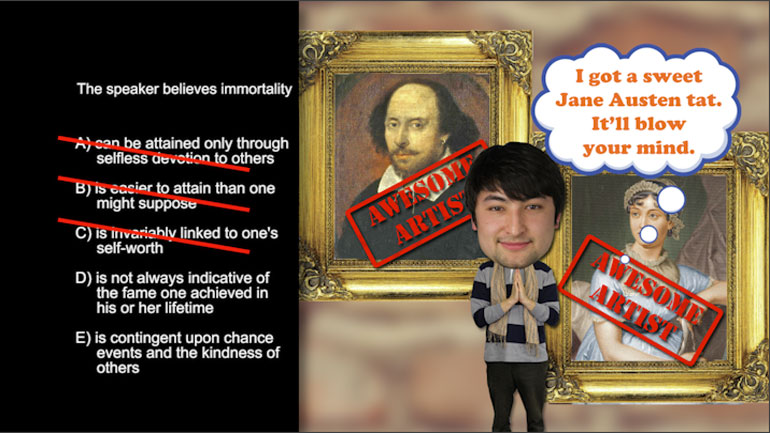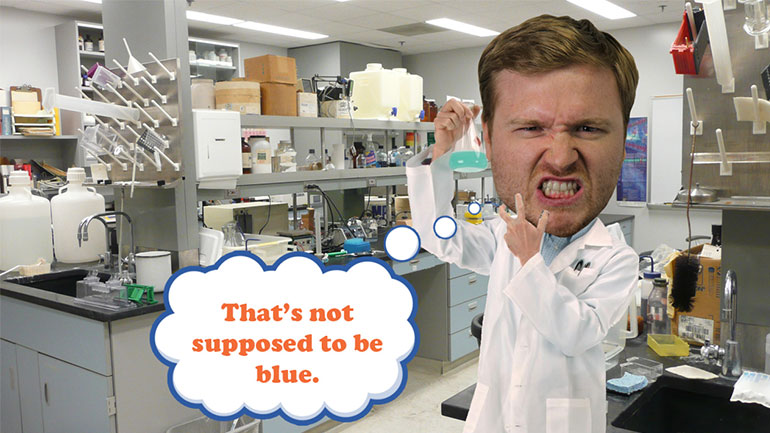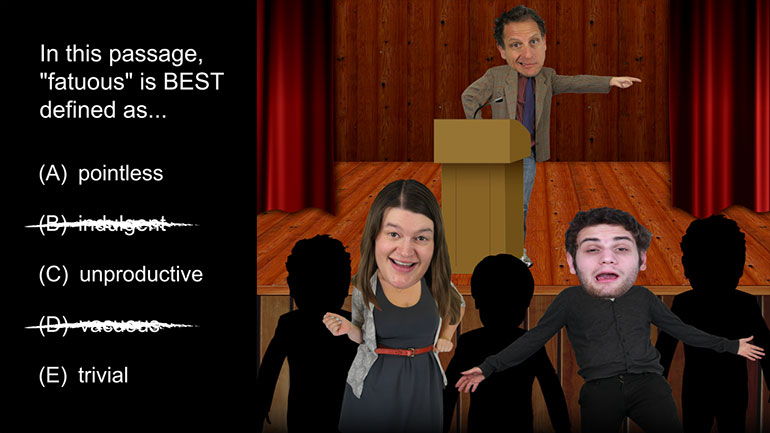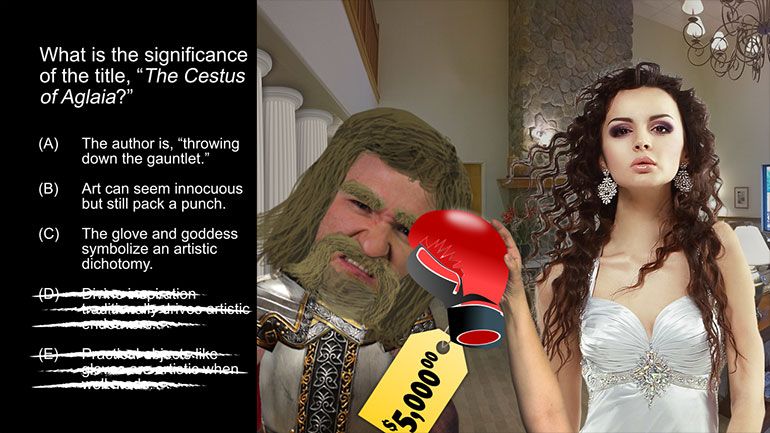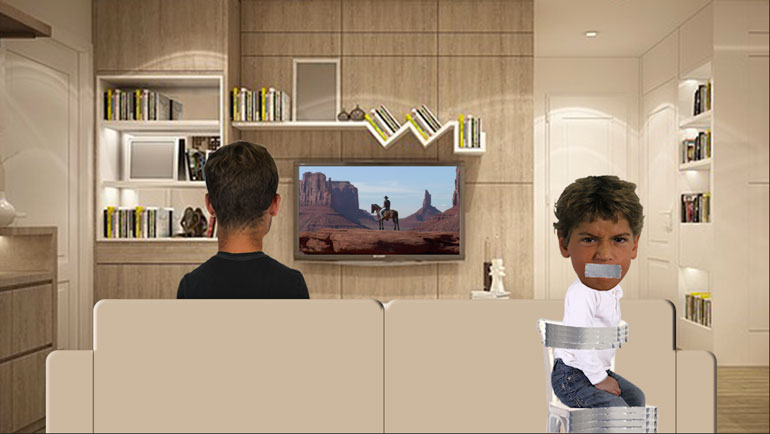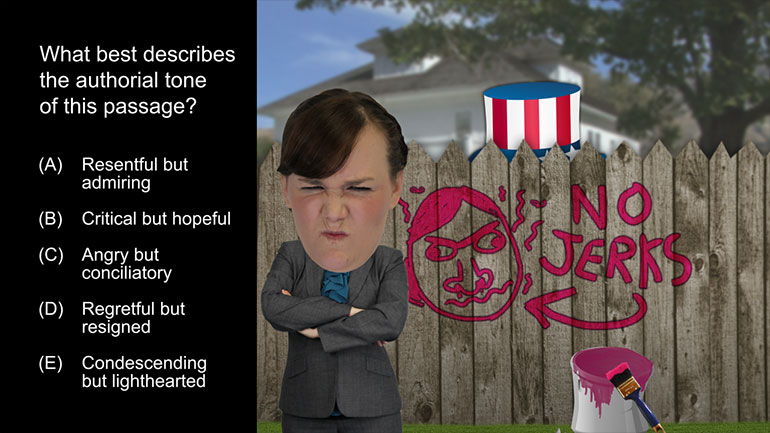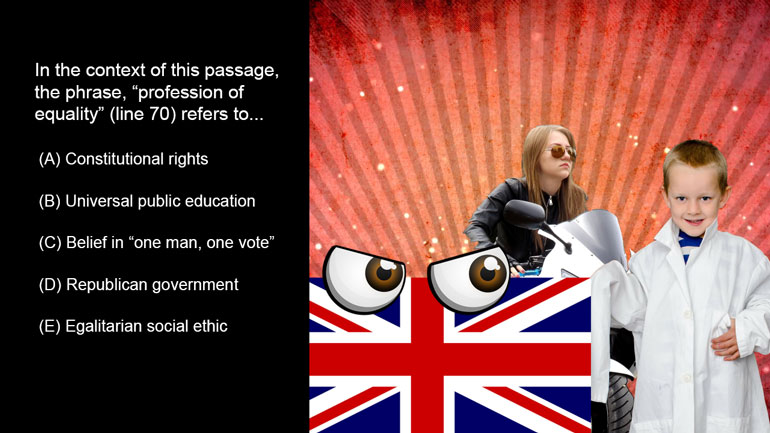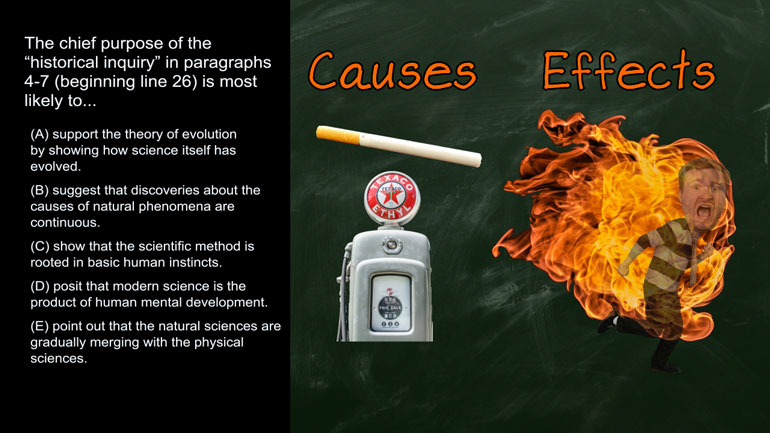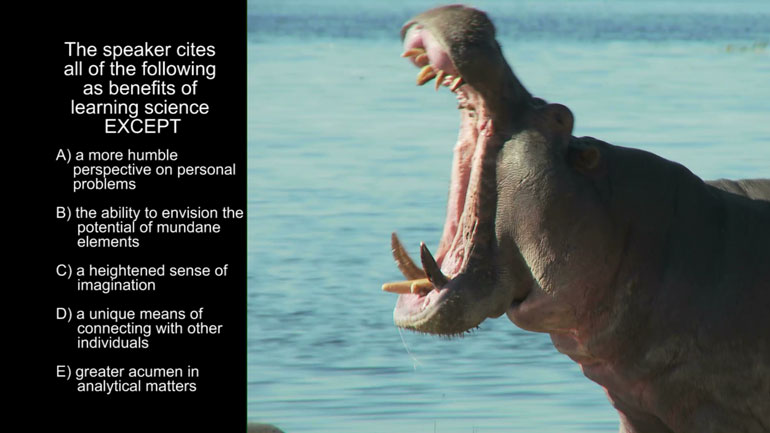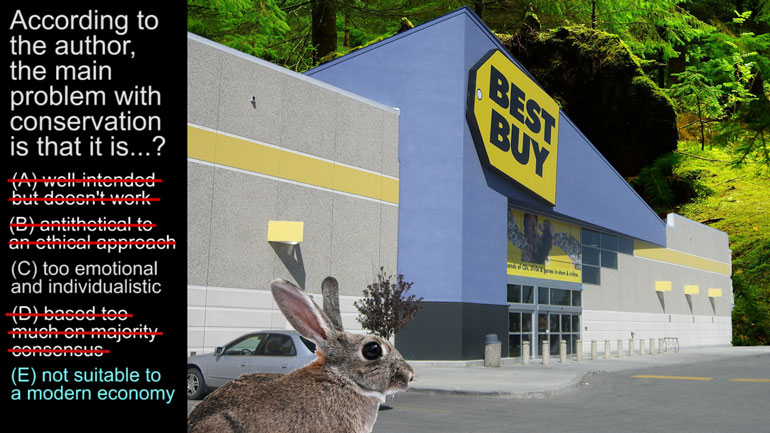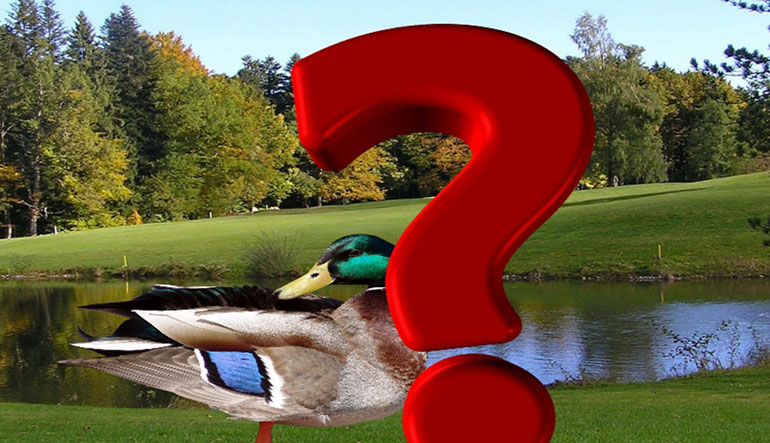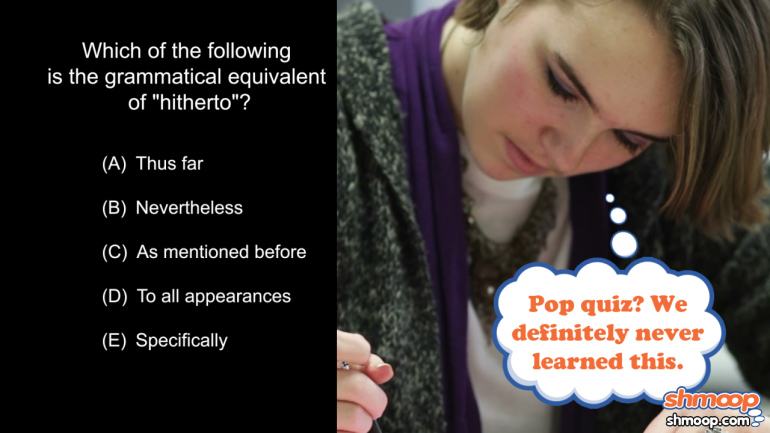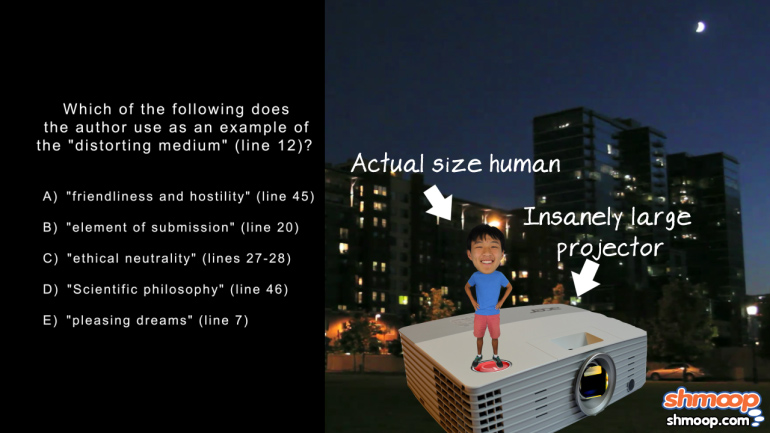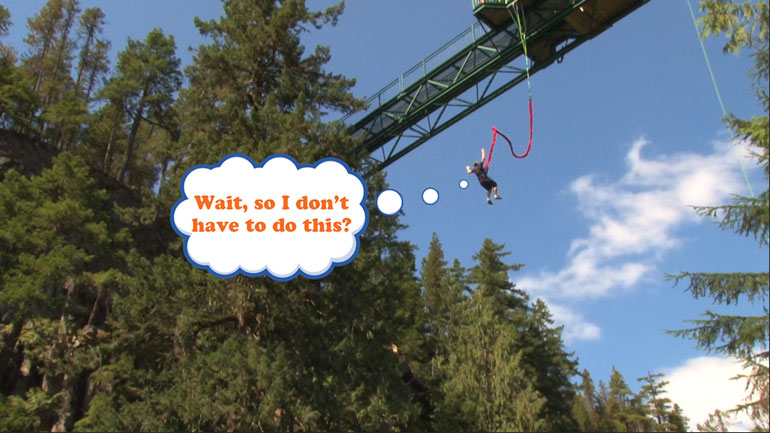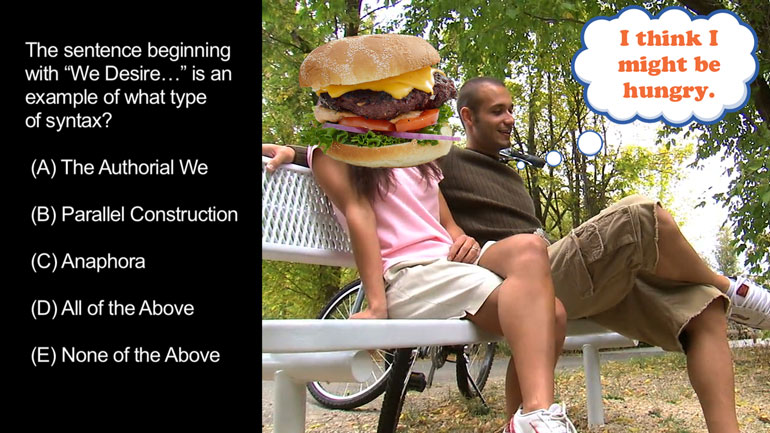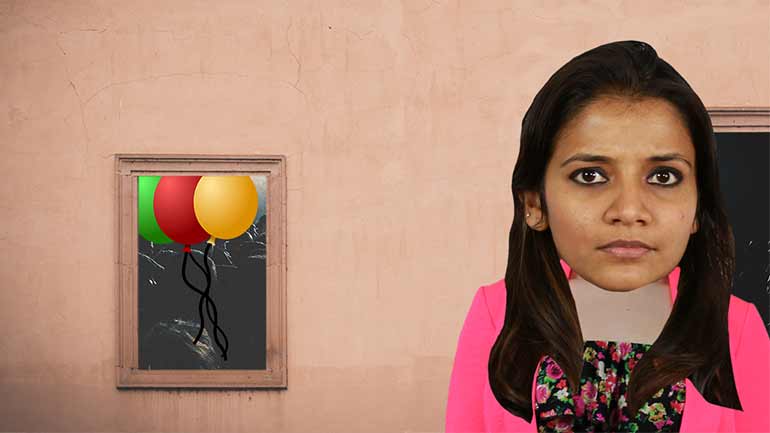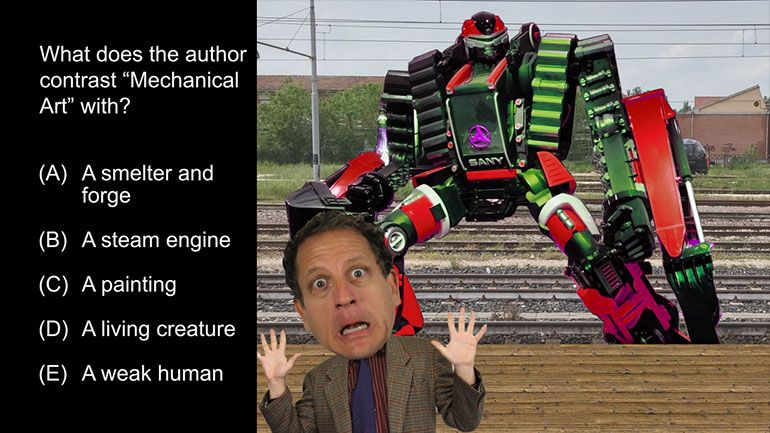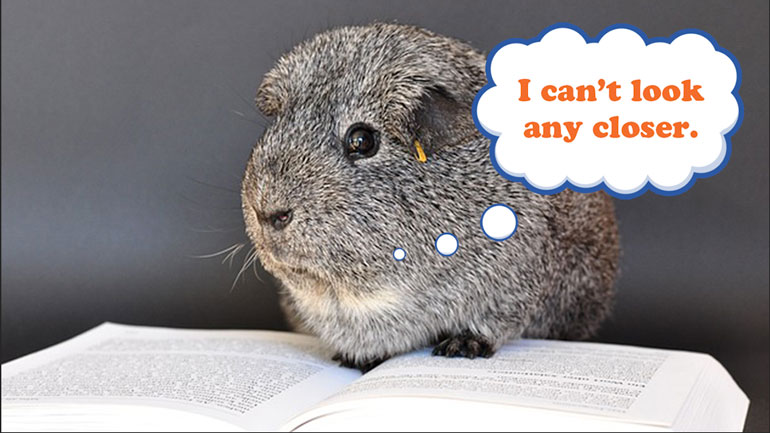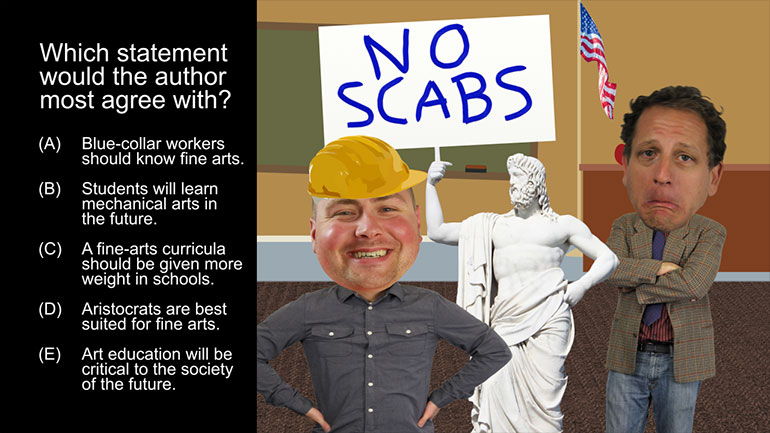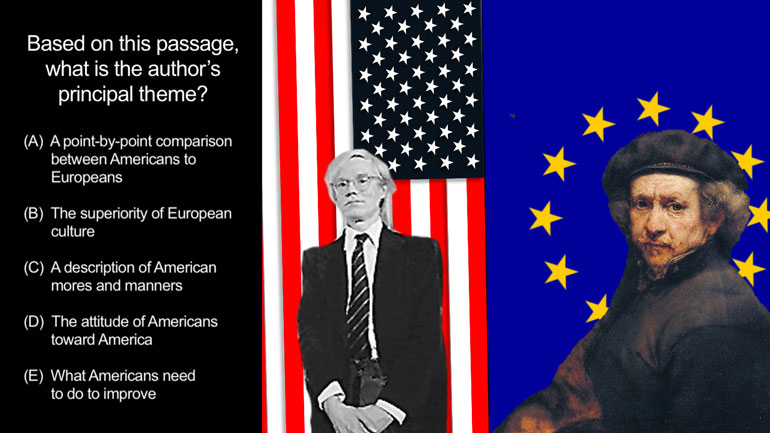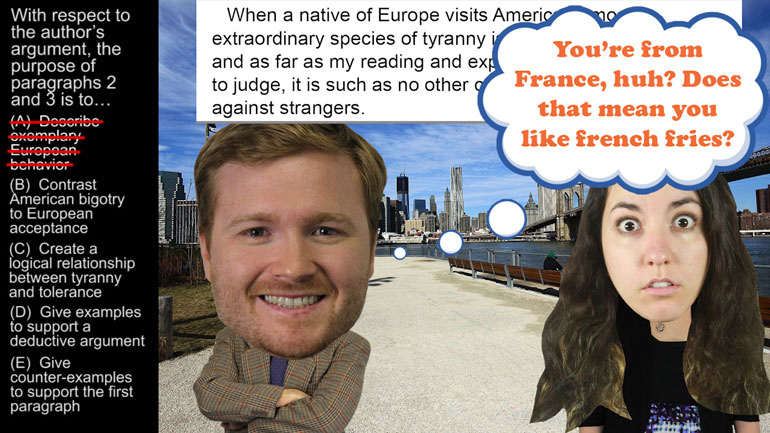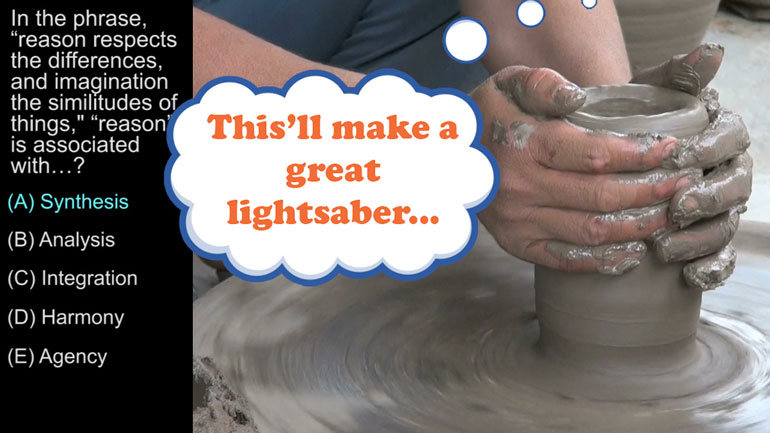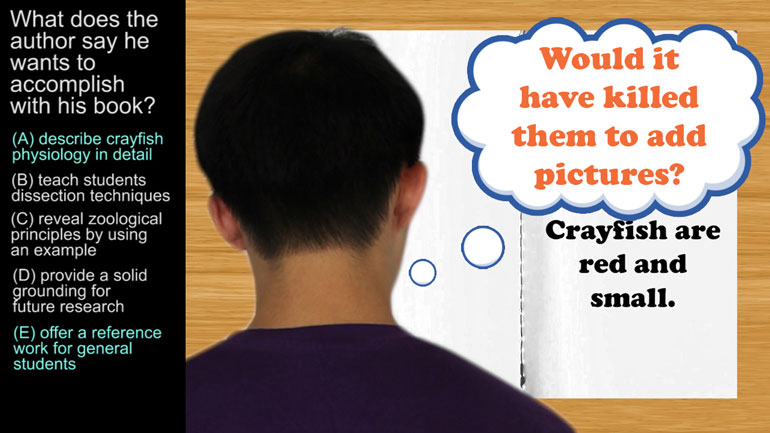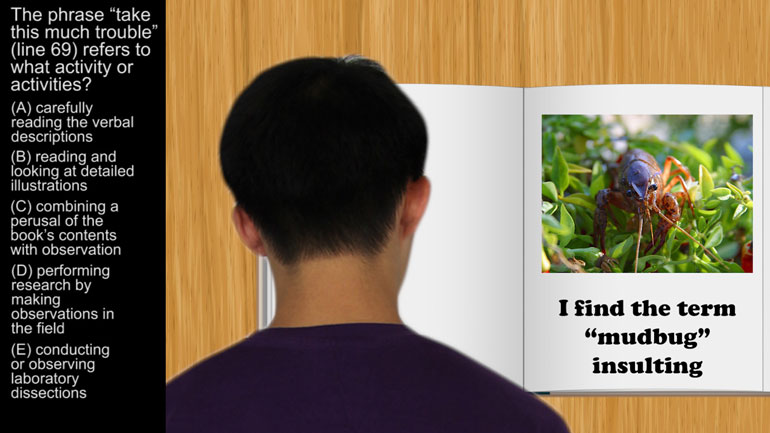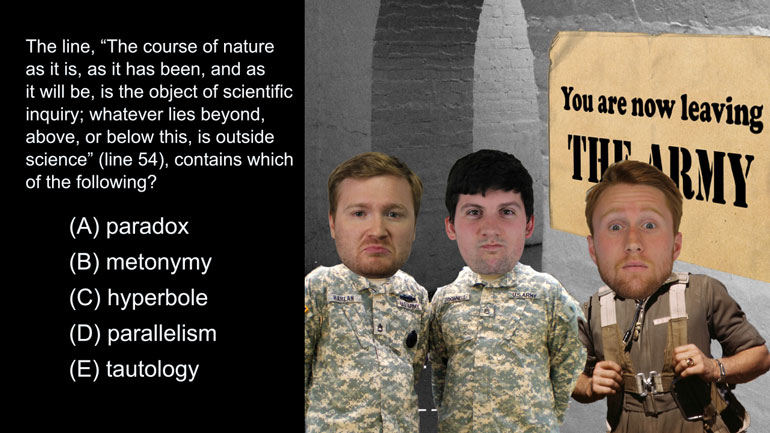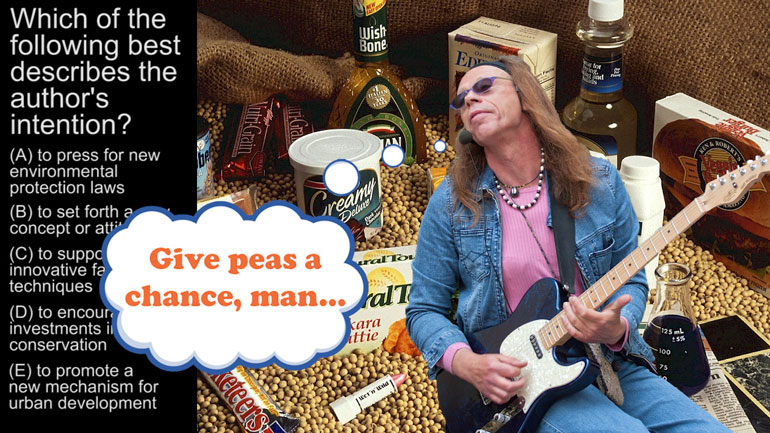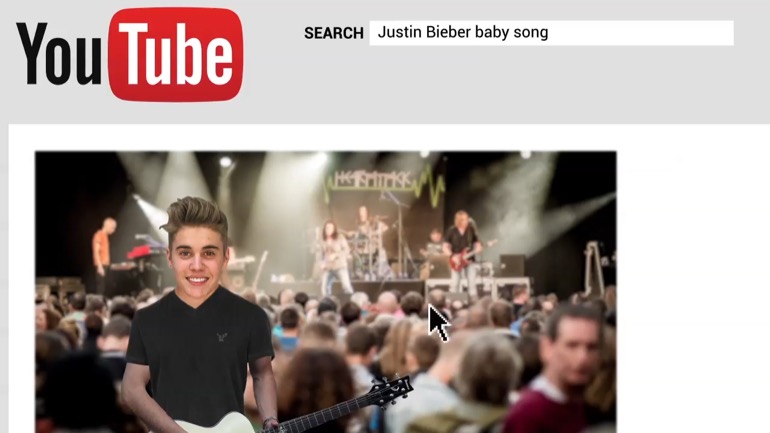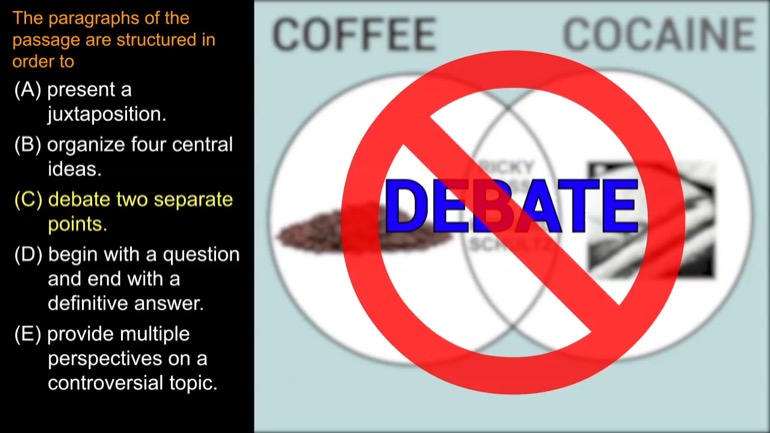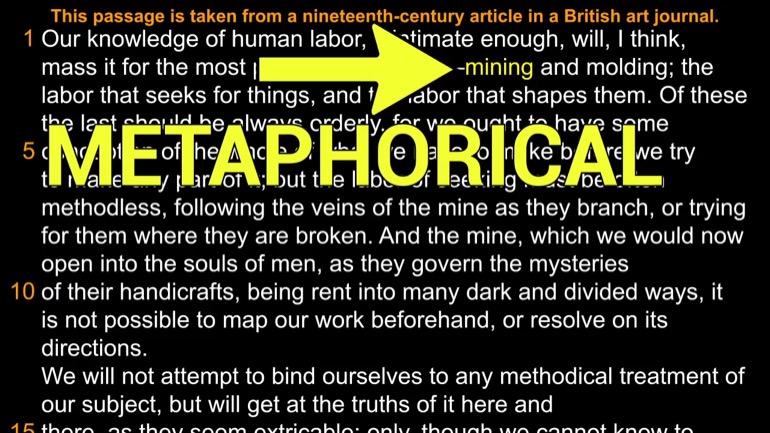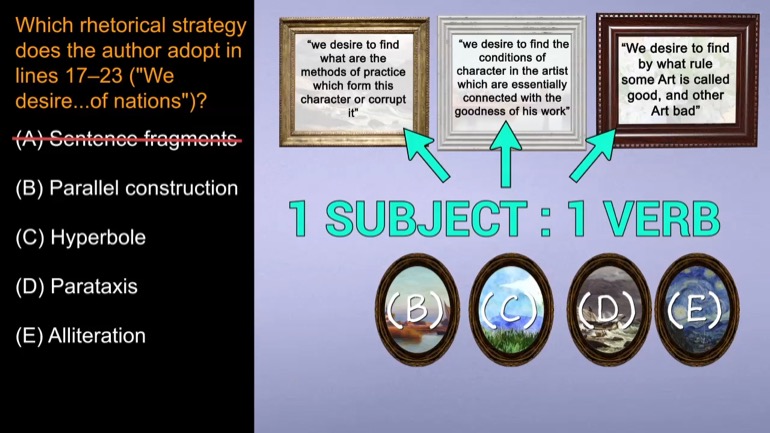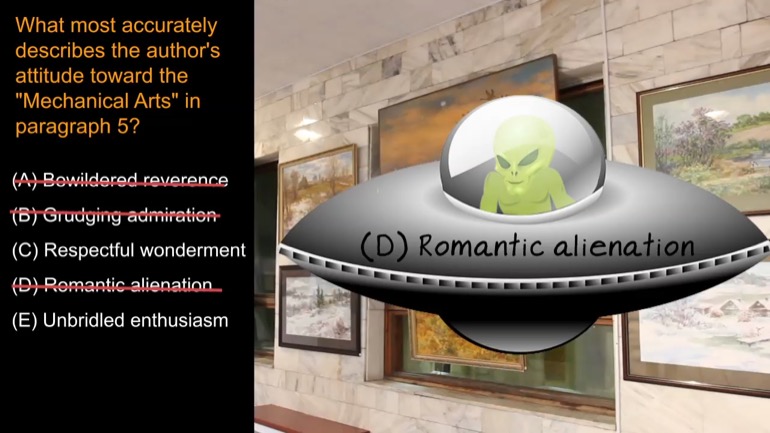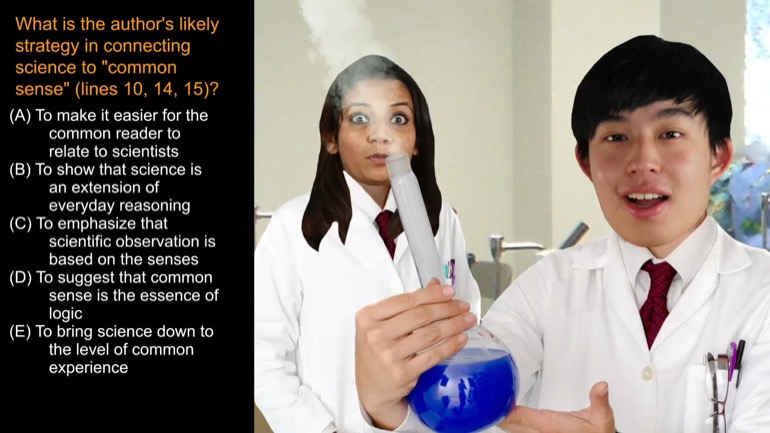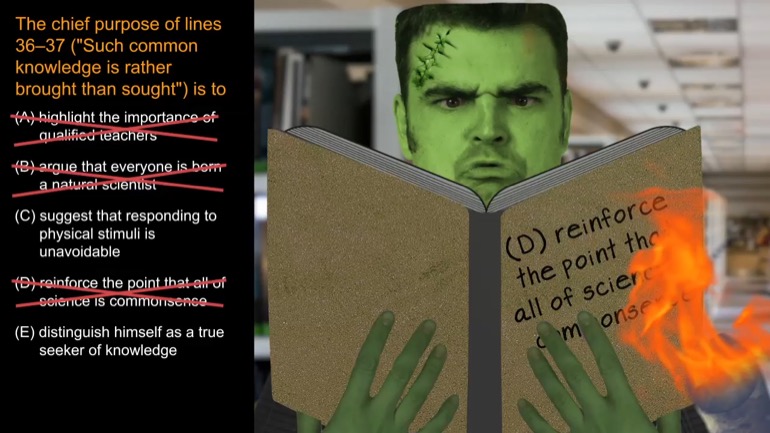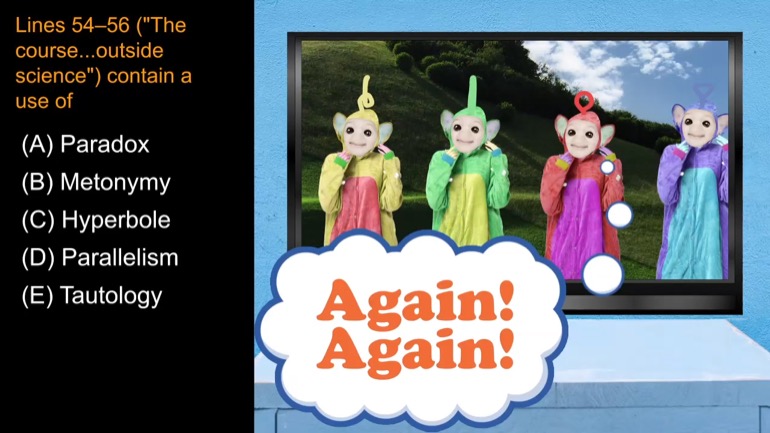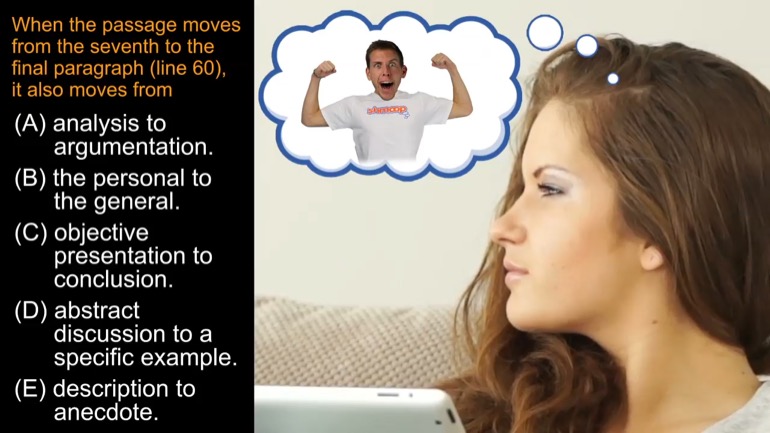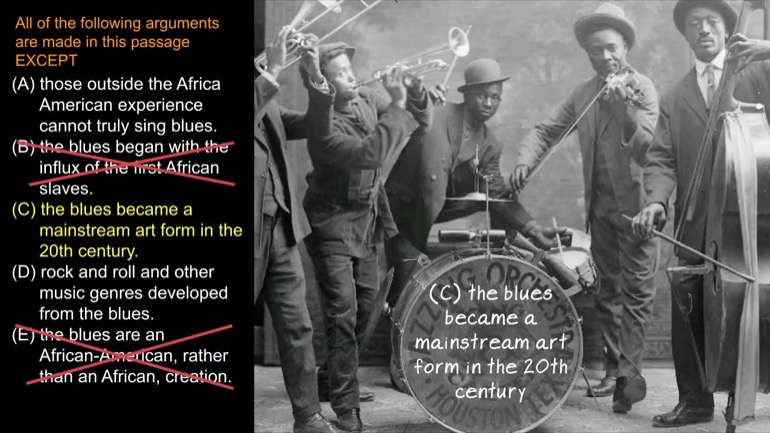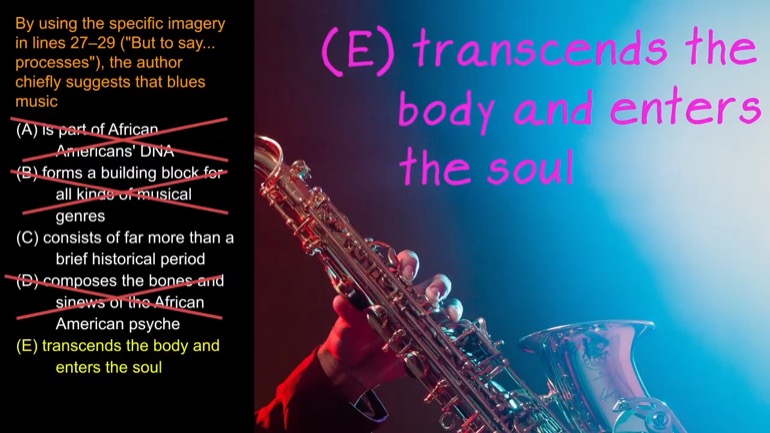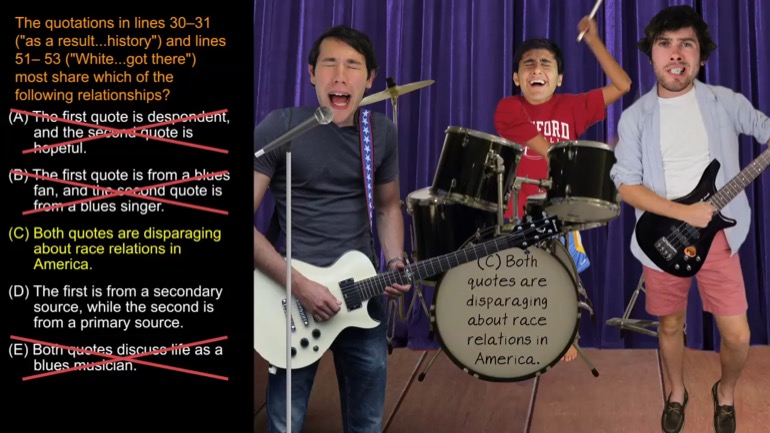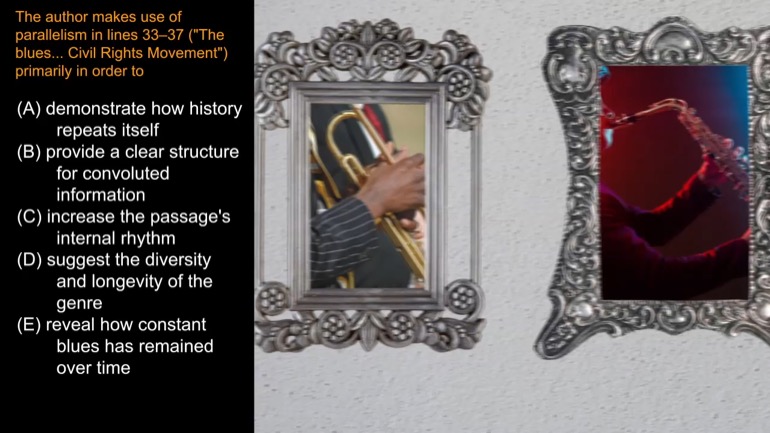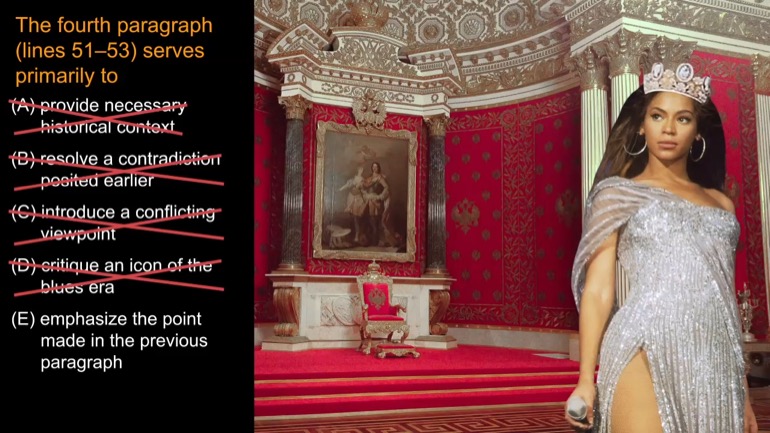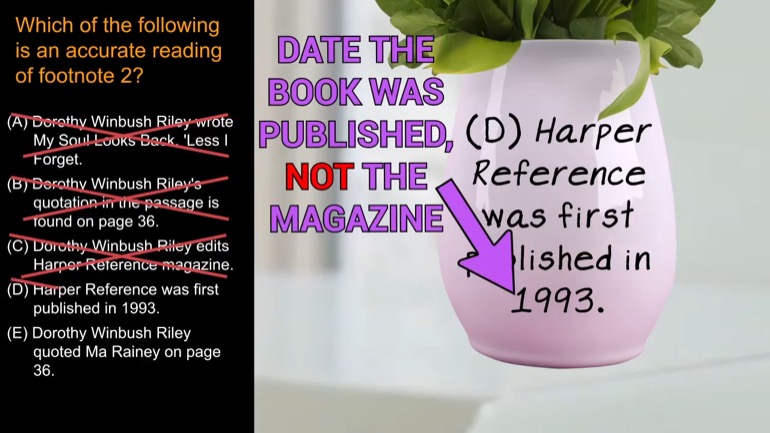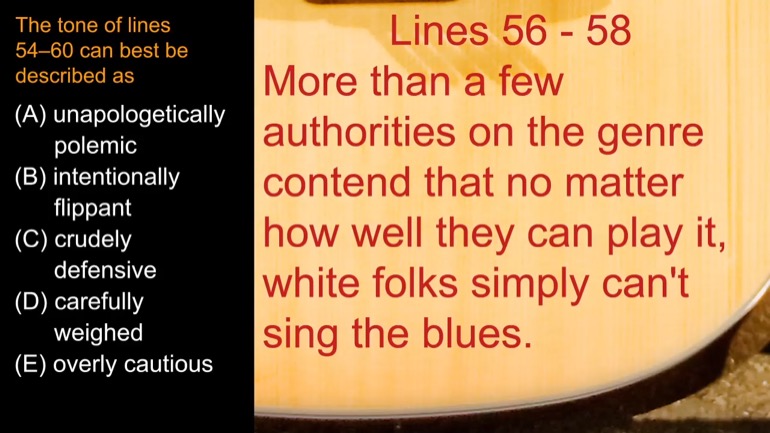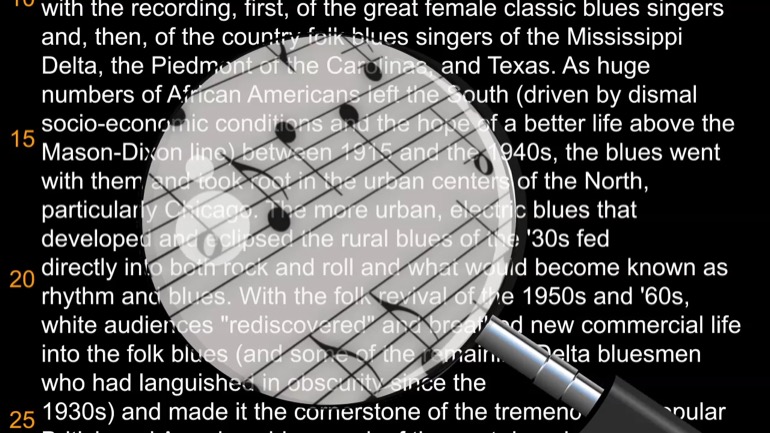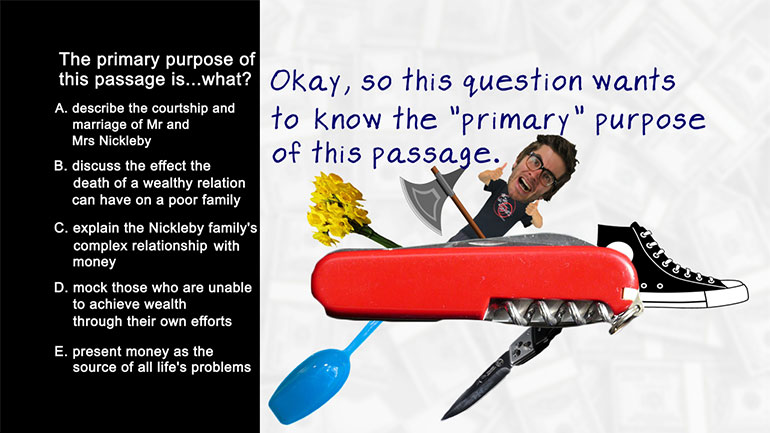ShmoopTube
Where Monty Python meets your 10th grade teacher.
Search Thousands of Shmoop Videos
Passage Drill Videos 141 videos
AP English Language and Composition: Passage Drill Drill 1, Problem 2. What is the speaker's primary purpose in using onomatopoeia in line four?
AP English Language and Composition: Passage Drill Drill 1, Problem 7. What is the principal rhetorical function of paragraphs one to three?
AP English Language and Composition: Passage Drill 1, Problem 8. The quotation marks in the third paragraph chiefly serve to what?
AP English Language and Composition 9.9 Passage Drill 169 Views
Share It!
Description:
AP English Language and Composition 9.9 Passage Drill. What rhetorical strategy does the author use with this expression?
Transcript
- 00:00
Thank you We sneak and here's your smoke du jour
- 00:05
brought to you by argument an important evolutionary trade that
- 00:08
separates humans from animals My how far we've come and
- 00:11
take a look following passage and just skimming skimming fast
- 00:15
We're just going to skim it to many words You
Full Transcript
- 00:17
got paid by the word in those days and they
- 00:19
wrote a lot of all right here we go What
- 00:21
rhetorical strategy does the author use with the expression Not
- 00:25
that i assert poets to be profits in the gross
- 00:27
sense of the word or that they can foretells the
- 00:30
form as surely as they for no the spirit of
- 00:32
events And here are potential answers Definitely did not write
- 00:37
that paragraph We get the fired and shot we're doing
- 00:40
ok Here we go Well is the author transitioning from
- 00:43
a positive to a negative Will The use of the
- 00:45
word not would seem to suggest a negative But if
- 00:48
the author was transitioning from a positive to a negative
- 00:51
the quote would be more well negative maybe not that
- 00:55
negative The author seems to be talking here about what
- 00:57
poetry is not But if we read on such is
- 01:00
the pretense of superstition which would make poetry and attribute
- 01:03
of prophecy rather than prophecy and attribute of poetry such
- 01:07
a way with words we see Ultimately he wrote this
- 01:10
sense to make sure the reader understands that prophecy is
- 01:12
an attribute of poetry and not the other way around
- 01:15
We'll cross out a but remain positive Of course you'll
- 01:17
get him next time eh Is the author toning down
- 01:20
the rhetoric with a concession This is another answer we
- 01:22
can rule out because a concession would mean the writer
- 01:25
was conceding a point or admitting that someone who disagrees
- 01:28
with him might be right about something There's no concession
- 01:31
here The author is telling us something he doesn't want
- 01:34
us to think he thinks and then reiterating something he
- 01:36
wants us to think He thinks We think we'll concede
- 01:39
The answer is nazi And maybe bring some of that
- 01:41
popcorn over here please All right Is the author setting
- 01:44
up a new argument Well in the previous sentence the
- 01:46
author says that a poet beholds the future in the
- 01:49
present And in this sense he discusses the relationship between
- 01:52
poetry and prophecy Well if you already mentioned the concept
- 01:55
below then this is not a new argument so let's
- 01:57
cross out d and we'll leave these two the sort
- 01:59
things out is the author stating the obvious to a
- 02:01
buttress and argument partner french there If you buttress an
- 02:05
argument it means you provide support for an argument the
- 02:08
way a stone or brick buttress provides support for a
- 02:11
building or wall The author may be supporting his argument
- 02:14
here but he's not necessarily stating the obvious unless it
- 02:16
was obvious to you already So we'll rule out he
- 02:18
is well we've come a long way buttress assured We're
- 02:22
almost there if we go back to be it makes
- 02:24
a whole lot more sense that the author is clarifying
- 02:26
encountering a possible objection when he writes not that i
- 02:29
assert he is basically saying before i tell you what
- 02:32
i'm saying let me tell you what i'm not saying
- 02:34
This method makes it harder for an opponent to refute
- 02:37
argument because the opposition's point has already been made The
- 02:40
other is anticipating that the reader may be skeptical of
- 02:43
what he's saying and he is cutting the reader off
- 02:45
the past We have our answer and now we know
- 02:47
how to argue with ourselves Just another step in our 00:02:50.12 --> [endTime] evolution Oh so many steps yet to go
Related Videos
AP English Language and Composition: Passage Drill Drill 1, Problem 2. What is the speaker's primary purpose in using onomatopoeia in line four?
AP English Literature and Composition 1.1 Passage Drill 7. The primary purpose of this passage is what?
Wishing upon a star may help you pass your AP English Language and Composition test, but answering this question would be a safer bet.
Take a look at this shmoopy question and see if you can figure out which device the speaker employs the most.
Feel like shifting gears and answering a question about shifting tones? We've got you covered. Take a look at this question and see if you can foll...

